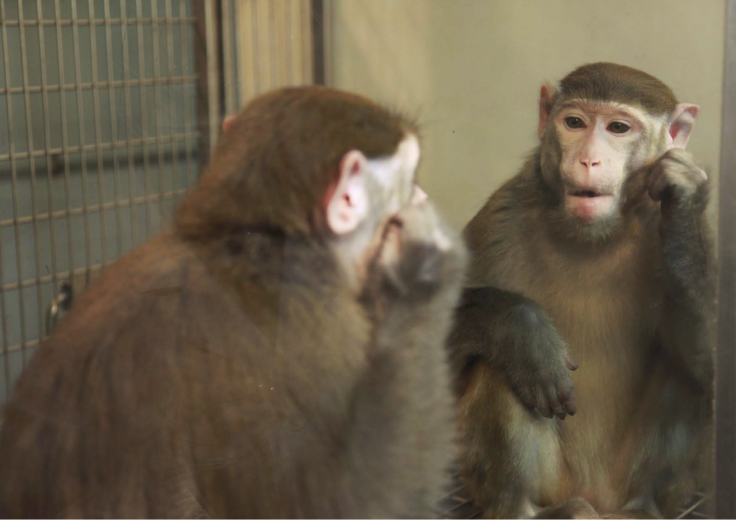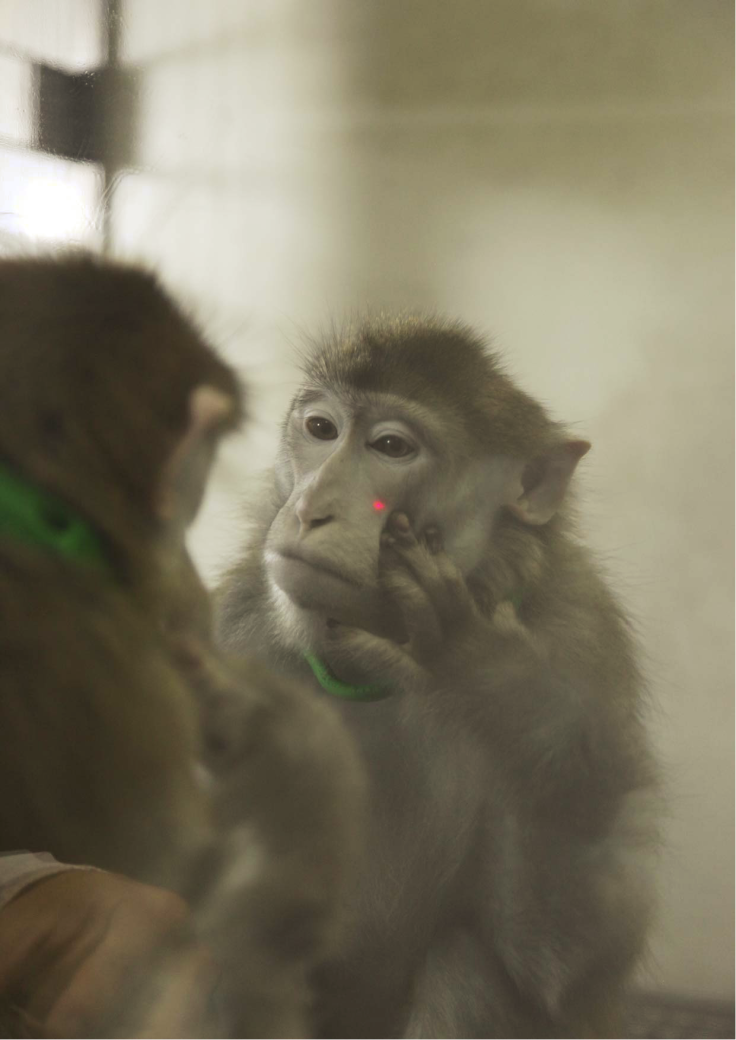Monkeys recognise themselves in mirrors for first time and decide to look at genitals

Monkeys have recognised themselves in a mirror for the first time, showing they are able to develop this skill if taught.
As well as displaying self-recognition, researchers also showed the rhesus monkeys continued to use their reflection spontaneously to explore parts of their bodies they do not normally see – namely their genitals.
Experts at the Chinese Academy of Sciences noted that earlier studies have shown that monkeys have been able to learn to use mirrors as tools for observing other objects, but never before have they shown any sign of self-recognition.
In the study, published in the Cell Press journal Current Biology, researchers initially marked the monkeys' faces and presented them with mirrors. Unsurprisingly, they did not touch or examine the spot, showing they did not realise it was their own face looking back at them.
However, the team then sat the monkeys in front of mirrors and shined a "mildly irritating" laser light on their faces. After two to five weeks, the monkeys had learned to touch the area of their faces where the light was.
Five of the seven monkeys showed self-directed behaviours, such as touching the mark on the face then looking at or smelling their fingers. They also began to use the mirrors to examine their body parts unprompted by the researchers.
Study author Neng Gong told IBTimes UK: "Of course [we were surprised]. The most exciting moment in our study was the time we first saw the typical dye mark touching behaviours in the mark test after training with laser light.
"This is the first time that monkeys passed the mark test, suggesting self-recognition. We were also delighted to find that most monkeys that passed the mark test show spontaneous self-directed behaviours in their home cage in front of a mirror."
Asked which body parts they were particularly interested in, Neng said: "We only trained the monkeys to touch the light spot on their faces, but they could generalise the mirror-recognition to regions away from the face, almost all the body parts. They most like to look at their genital areas, faces, as well as arms and legs."
Scientists say their findings suggest monkeys have the basic neurological "hardware" for self-recognition, but need training to achieve it. However, Neng said it does not mean rhesus monkeys could eventually evolve to have self-recognition.
A number of species including elephants, pigeons and dolphins, have passed the mark test of self-recognition in the past. Explaining what their findings, mean, Neng said: "Among all primates, only humans and several species of great apes were reported to have the ability of mirror self-recognition.
"In the evolution, many higher brain functions including self-awareness appear in great apes but not in monkeys. Thus, studying the self-recognition in monkeys will help us to understand the origin of self-awareness.

"In an evolutionary view, the ability of self-recognition seems not so important for monkeys, because they do not need this ability for living. However, for humans, self-awareness is the most important higher brain function, especially for social behaviours, eg, sympathy, empathy, perspective-taking (understanding the situation by taking other's perspective), and language communication.
"Understanding the neural basis of self-awareness and consciousness is the ultimate goal of understanding the human brain."
In terms of applications of their findings, Neng said it could lead to an insight into disorders where people cannot recognise themselves in a mirror, as well as diseases like schizophrenia and Alzheimer's.
"Although the impairment of self-recognition in patients implies the existence of cognitive and neurological deficits in self-processing brain mechanisms, our finding raised the possibility that such deficits might be remedied via training. Even partial restoration of self-recognition ability could be desirable."
© Copyright IBTimes 2025. All rights reserved.






















